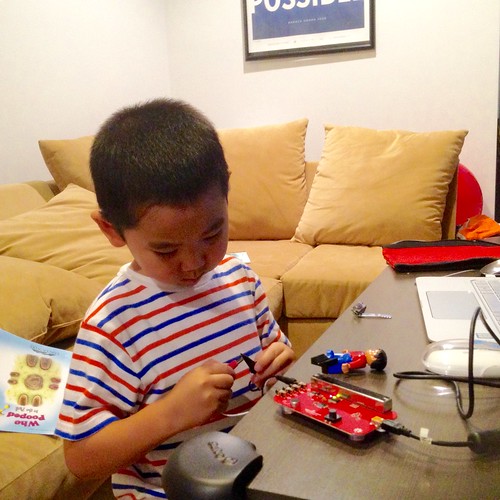What were the results? In a sense, it should not be necessary, we are regular visitors to the natural history museum and have covered multiple times every corner. We certainly have the expertise for piano in the house, and we could have done computing and robots as well. Why not? In addition to the fact that we have jobs, what we got was interaction with other, older kids (the staff of these camps). I once read that the reason that kids should interact with kids of a range of ages is so they learn how to be bossed around by others, how to boss others, and how to take and give instruction. In addition, T interacted with a wider range of kids. Our first questions after every day were "what did you do?" and "who were you partnered with?"
The other thing that was good was the fact that the economics of summer camps mean that the kids do get more autonomy than the usual school year (otherwise, staff would get overwhelmed with the workload) so what T got was a lot more initiative and curiosity. And more confidence which shows in his playing piano and more exploration in his play.
Yes, we probably could push him further than any enrichment program would in piano, science, programming, math, or robotics; but that is not the goal. The goal is someone who learns how to learn, has curiosity, and enjoys himself along the way. We are skeptical of a lot of the offerings that we have seen, but what T did do, we think went a long way towards this goal.
 |
| Testing something for conductivity using a Picoboard |
No comments:
Post a Comment